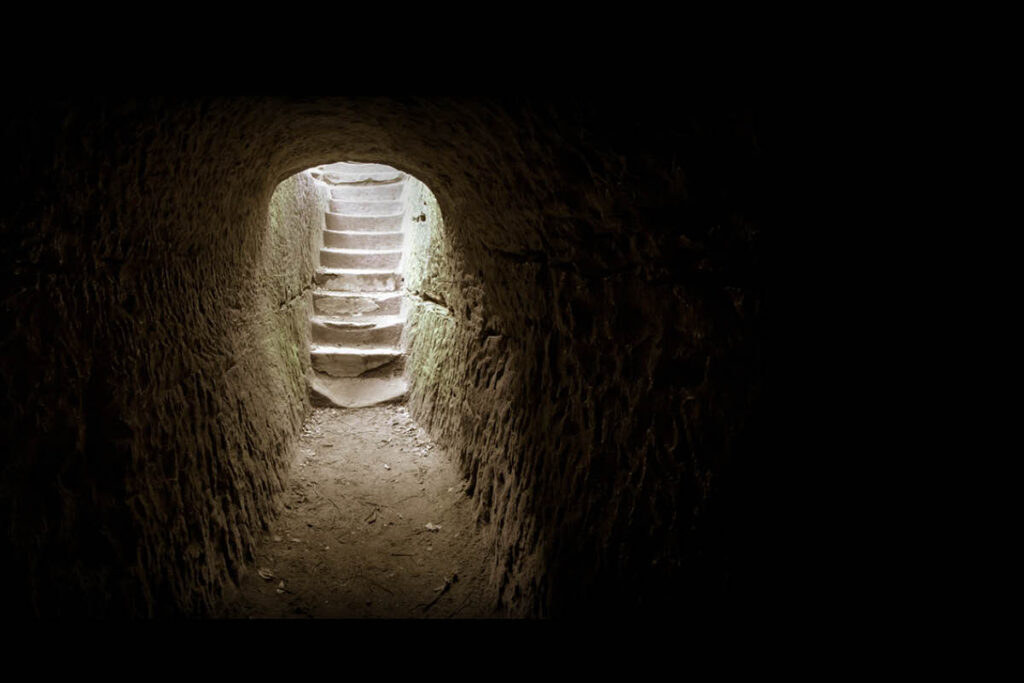
I’m reading through Exodus this morning. Just finished the part where the nation of Israel passes through the Red Sea on dry ground and the Egyptians who follow are drowned as the sea closes in upon them. I remember how this comes out. Israel wanders in the wilderness for another 40 years because they don’t believe that the very God who did that right in front of their eyes would also give them the land to which he was bringing them.
This brought to mind another passage that has always fascinated me. In the eleventh chapter of the gospel John wrote, we’re told of one of the most incredible events in Jesus’s earthly ministry – the raising of Lazarus from the dead.
And there’s a subtlety in the story that we sometimes miss. I wouldn’t have seen it but for Tom Schrader’s teaching on it where he points out the first word (in the English translation) of the 45th verse of that chapter: “Many of the Jews therefore, who had come with Mary and had seen what he did, believed in him…”
“Many.”
While Hollywood can’t seem to tell a Bible story without embellishment (and in some cases (most recently Exodus and Noah) bizarre and distorted additions), they still make for some pretty powerful imagery at times. My favorite is probably when they tell the story of Lazarus’s resurrection in the 1965 film, The Greatest Story Ever Told.
Yes, they added their way of telling the story. But in the context of the actual text, I can’t help but think of that word, “many.” It’s a notable word, and this because John doesn’t use the word “all” here.
“Many.”
The scene from the film ends with men running to proclaim the miracles of Jesus. But there are others. In the next verse of this story, John writes, “but some of them went to the Pharisees and told them what Jesus had done.” I see the “some” running in the other direction. They’re going to tell the Pharisees what Jesus had done. And what do the Pharisees do with this information? Nothing other than deciding all the more that Jesus is dangerous to them, “so from that day on they made plans to put him to death.”
Men who had seen Jesus raise Lazarus – four days in the tomb – from the dead, and their answer is not to fall down in worship, but to tattle on him to a bunch of guys who think it’s better to kill him for it. It reminds me too of another Lazarus from a story Jesus tells in the sixteenth chapter of Luke’s gospel. It’s a story of how a rich man and a beggar’s fortunes had reversed in death, where now the rich man suffered and the beggar rested in the bosom of Abraham. And as the rich man begged for relief, he asked that at least Lazarus be sent to warn his brothers of the suffering to come after death. “But Abraham said, ‘They have Moses and the Prophets; let them hear them.’And he said, ‘No, father Abraham, but if someone goes to them from the dead, they will repent.’He said to him, ‘If they do not hear Moses and the Prophets, neither will they be convinced if someone should rise from the dead.’”
I have written here before of God’s general and specific revelation. Here, Abraham is saying some of the same. “God has told you all of these things already, and you have rejected him in favor of yourself. Why would raising someone from the dead make a difference?”
This points to something Paul says in his letter to the Corinthians (1 Cor 15:17) that speaks to the absolutely critical importance of Christ’s resurrection: “If Christ has not been raised, your faith is futile and you are still in your sins.” Paul expresses some of the same in his frustrations to the church in Galatia when he says “O foolish Galatians! Who has bewitched you? It was before your eyes that Jesus Christ was publicly portrayed as crucified.” He’s saying, “you have eyewitness testimony to these events, why are you changing your minds now?”
We see more as John starts his first letter like this: “That which was from the beginning, which we have heard, which we have seen with our eyes, which we looked upon and have touched with our hands, concerning the word of life— the life was made manifest, and we have seen it, and testify to it and proclaim to you the eternal life, which was with the Father and was made manifest to us— that which we have seen and heard we proclaim also to you, so that you too may have fellowship with us; and indeed our fellowship is with the Father and with his Son Jesus Christ [emphasis mine].”
It all adds up to this: Jesus Christ came to this world and performed many miracles. His life, death, and resurrection are historical events attested to by witnesses and recorded for us in the words of the Bible. The whole of the Christian faith rests on his resurrection. If it happened, then the rest of what he says must be considered valid.
There it is, laid before you plainly and simply. The question then is what are you going to do with that? Will you be among the “many” who see and believe? Or will you be among the “some” who seek rather to put him to death in their lives?
If the resurrection of Christ really happened, your answer to those questions is the most important you will ever give.

